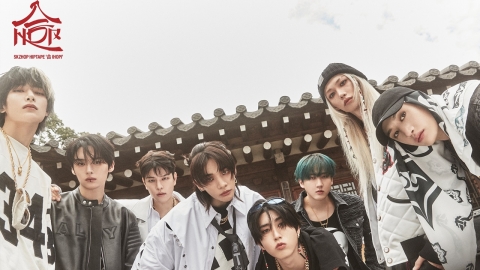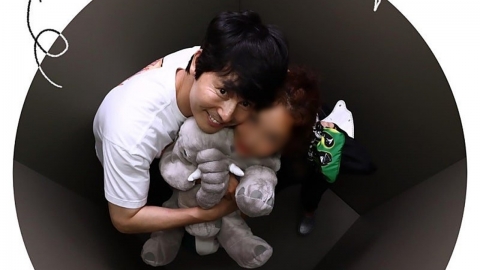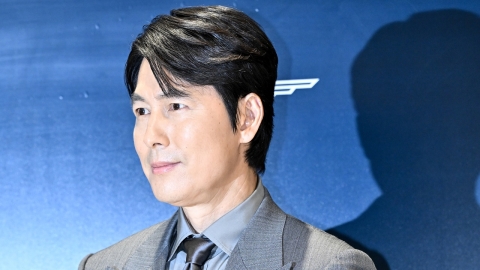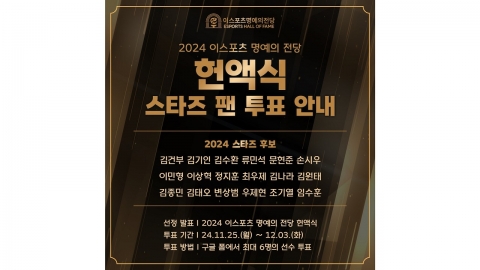■ Starring: Attorney Kim Sung-soo
* The text below may differ from the actual broadcast content, so please check the broadcast for more accurate information. Please specify [YTN New Square] when quoting.
[Anchor]
Lee Jae-myung, chairman of the Democratic Party of Korea, was acquitted in the first trial of the case of a testimonial teacher. Kim Jin-sung, who was also indicted, is drawing attention to the judgment of the court as he was convicted of a fine. Regarding this, I will look into it with lawyer Kim Sung-soo. Welcome. Of course, the opposition argues that it's a natural result.There were many predictions that there would be some convictions in the legal profession, so should we start with the background of this ruling?
[Kim Sung-soo]
In this case, there was a case of the Public Official Election Act in 2018 in connection with the prosecutor impersonation case in 2002. At that time, Kim Jin-sung, a witness at the time, confessed to perjury, and prosecutors reported that there was a perjury teacher about how he came to perjury confession. As a co-defendant, Kim Jin-sung was found guilty of 5 million won in fines because four of the six remarks were considered perjury. In the case of Representative Lee Jae-myung, since the perjury teacher's fact was not proved and it appeared to be intentional, he was acquitted, so among the various possibilities, perjury was recognized and the teacher was not recognized, and this possibility was the judgment of the first trial of the court.
[Anchor]
I looked at the background of the acquittal of CEO Lee Jae-myung in the first trial of the perjury teacher case, but he was fined 5 million won in the case of Kim Jin-sung because he was admitted to perjury. What is the background of the conviction?
[Kim Sung-soo]
Regarding this part, I think this part was reflected because he admitted that he perjured himself. First of all, in the ruling, the prosecution saw that six remarks were suspected of perjury, and four of them were false testimony by Kim Jin-sung by making such statements contrary to his memory. That's why the crime of perjury was established. However, he was fined 5 million won because there is a part where he can admit his charges and see that he has room for reflection, which seems to be the case.
[Anchor]
However, perjury was proved, but some of the perjury teacher's actions were recognized. What's going on here? Then, perjury was done voluntarily, and the perjury teacher may see it that way, but it was judged that there was no intention.
[Kim Sung-soo]
In order for a perjury teacher to be established and punished, it must be revealed first whether there was such a teacher's act, and if there was an act, whether the perjury teacher was intentional at this time, so this could be an act that can be seen as perjury teacher even though I did it without intention, right? That's why two things had to be analyzed, but from the court's point of view, there are many parts where phone recordings and such contents seem to be in the range of asking witnesses to testify. However, in analyzing each sentence, there seems to be such an act that seems to have taught perjury in some cases.
However, since this can be interpreted in multiple ways, it seems to have been pointed out that there is a question about whether there is a perjury teacher's act.
And even if there was such an act, especially when CEO Lee Jae-myung is on the phone, there is a part that can be seen as the purpose of telling the story as he remembers it, so when CEO Lee Jae-myung talks at this time, there is no intention or willful intention, that is, there is no predictability to predict that this person will make false testimony by saying this, so even if there is no intention, the perjury teacher is not established.
[Anchor]
Then, if there is no intention of perjury teacher, why did Kim Jin-sung perjury?
[Kim Sung-soo]
Regarding that, it seems that the prosecution's claim will be dug into that part because it has not yet been specified that it was done for any benefit in the judgment of the court.
[Anchor]
The question is, how will the second trial judge be judged? The ruling and opposition parties seem to have very different interpretations on this, especially when you look at the recording file of the call, doesn't CEO Lee Jae-myung send you the summary of the argument after recording? I think they observe this part like this, that the interpretation may be different in the second trial. Which part is the issue?
[Kim Sung-soo]
Regarding the part that sent the summary of the pleading, the prosecution said that this is the summary of the pleading, and the defendant's position is this, and the facts are this. The legal application is this. It's a book that's organized like this.
[Anchor]
arranged and submitted by Representative Lee Jae-myung
[Kim Sung-soo]
That's right. Then if you look at this summary, you can see that this person is making this argument, so the prosecution seems to have suspected that the act of sending the summary itself was intended to make a statement as stated in the summary, but the court said that sending the summary itself was for this purpose to evoke memory, it is not beyond the scope of the right to defend. By looking at it like this, there was a part where it was considered that sending the summary was not an act of perjury, and of course, the appellate court sent the recorded file and the summary of the argument. Since these are inevitably important issues, I think the prosecution will once again argue about the intentionality and guilt in this regard.
[Anchor]
The part that the prosecution should claim more in the second trial is intentional, so what part of it should be proved a little stronger to prove intentional?
[Kim Sung-soo]
There are parts in the first trial ruling that the intentionality is not recognized because of this and this, so through each rebuttal, the appeals court should go through the process of proving as much as possible so that the judgment of the first trial is a little wrong. Therefore, if there is additional witness or additional evidence regarding the facts, it may be necessary to review the submission of this part, and I think that there was a precedent like this that at least unnecessary intention was recognized when such an act occurred, and that these parts would be submitted as much as possible.
[Anchor]
Representative Lee Jae-myung was sentenced to invalidity of election in the first trial, but related to the Public Official Election Act. Fortunately, this time, he was acquitted, and the second judicial risk was over the hump. But there are many mountains to cross in the future, right?
[Kim Sung-soo]
That's right. You can see that there are five cases that are currently on trial. The case of the Public Official Election Act you mentioned was convicted last week. Therefore, we are proceeding with the appeal, and if the appeal proceeds, there will be a very sharp dispute over the appeal. In the case of the perjury teacher case yesterday, of course, the prosecution will appeal, so the appeals court will proceed on this part as well. And now, the cases of Daejang-dong, Baekhyun-dong, Wirye, and Seongnam FC are progressing as one case. Isn't there a case of double bubble and remittance to North Korea? There is also a suspicion of misappropriation of corporate credit cards in Gyeonggi-do Province, which is known to have been indicted recently. Therefore, there are five cases related to this part, and if any of these parts is sentenced to deprivation of the right to vote, the judicial risk itself is not over yet because it will continue to have a ripple effect on that part.
[Anchor]
Isn't there a double bubble remittance case among the five cases? In this regard, one of the important cases this week is former Vice Governor Lee Hwa-young's second trial of illegal remittance to North Korea, and there must be an issue with this, right? Wouldn't the speed of the trial affect the sentence?
[Kim Sung-soo]
As you said now, the fact that former Deputy Governor Lee Hwa-young's case is a crime has been paid by the Ssangbangwool side for the cost of North Korea in Gyeonggi Province. And in the process, they believe that there were violations of the Foreign Exchange Transaction Act. Regarding the reason why Gyeonggi Province paid for the visit to North Korea in Ssangbangwool, the prosecution seems to have been related to the cost of Lee Jae-myung's visit to North Korea. Therefore, if it is admitted in connection with the allegations of former lieutenant governor Lee Hwa-young, it is said that the remittance to North Korea was sent for Gyeonggi Province. Therefore, the prosecution can start with a more favorable position in the progress of the related case if the facts are confirmed. However, since the first trial court convicted former Vice Governor Lee Hwa-young and stated that it did not judge the relevance of Lee Jae-myung in this regard, it remains to be seen how the appeals court will judge it.
[Anchor]
However, since he was sentenced to a very heavy sentence in the first trial, I think he sees some variables that can reverse this heavy sentence in the second trial. I'm careful about this, but if I were to predict the sentence, what would be the issue?
[Kim Sung-soo]
Even if you are convicted in the first trial, you will not be acquitted in the appeal trial, and this is important, and if the legal judgment was important, the court can see another legal principle. Therefore, it seems that the confirmation of the facts is the most important part in this regard, but if there is a new part in the appeal trial, there may be a reversal, so the judgment of the appeal trial does not always be bound by the first trial. However, if the facts are revealed to some extent in the first trial and there is a clear part of this, the appeals court can be judged similarly. So, we don't know how much accuracy or clarity we have in that area yet, so we'll have to wait and see.
[Anchor]
The reason why we are also paying attention to the results of former Vice Governor Lee Hwa-young's trial is that if any of the five judicial risks is finalized before the presidential election, the five cases will not appear in the presidential election. What are some cases that could lead to a final sentence before the presidential election? [Kim Sung-soo] First of all, the case of the Public Official Election Act is expected to be the main issue. First trial was sentenced, and then appeals and appeals remain, right? Therefore, the principle of the Public Official Election Act is 6 months, 3 months, and 3 months. There are 3 months of appeals and 3 months of appeals, so if the principle is observed, it can come out quickly.
And even if it is not followed, in 2018, representative Lee Jae-myung's case of the Public Official Election Act was sentenced a little more than three months later in the case of an appeal, and although it was delayed a little, it was sentenced about a year later. If so, the presidential election seems to be an issue now, but the case of the Public Official Election Act will be confirmed before the presidential election. Even if he is found guilty, or if he is acquitted at an appeal trial and confirmed at the Supreme Court, it is said that the part will be sorted out first anyway. The next fastest thing is the perjury teacher case. In the case of perjury teacher case, there is a simple part of the facts, so this part is likely to proceed quickly. The reason why it is expected to be a little late is that there are a lot of witnesses in cases like Daejang-dong and these cases and they have not progressed much yet. As a result, some say that cases with many witnesses and Daejang-dong will be delayed.
[Anchor]
As a breaking news, we broke the news that the presidential reconsideration request was approved at the Cabinet meeting. Let's hear the on-site remarks at the Cabinet meeting presided over by Prime Minister Han Deok-soo.
[Han Deok-soo / Prime Minister]
Let's start the 50th Cabinet meeting now. On November 14, the opposition party unilaterally passed a bill at the plenary session of the National Assembly on the appointment of a special prosecutor to investigate the stock price manipulation case of Yoon Suk Yeol's spouse, Kim Gun-hee, without any consultation with the ruling party. The independent counsel bill was clearly unconstitutional, including a violation of the constitutional principle of separation of powers, supplementation of the special prosecutor system, violation of the principle of exceptionalism, and concerns of damaging the foundation of the judicial system.
Nevertheless, I am very sorry and sorry that the opposition party has again unilaterally dealt with the independent counsel bill, which has not been resolved at all. The special prosecution bill was revised by the Chief Justice of the Supreme Court to exercise the right to recommend candidates for special prosecution, but if the candidate recommended by the Chief Justice of the Supreme Court is inappropriate, the opposition party can exercise its right to veto indefinitely.
In other words, it has only a formal appearance of third-party recommendations, but in reality, it is decided that the opposition party can control the recommendation of special prosecutor candidates. In addition, although it has partially reduced the subject of investigation compared to the existing special prosecution bill, there is no change in the nature of undermining the principle of supplementality and exceptionalism of the special prosecution system by introducing special prosecutors for cases being investigated by the prosecution and the Senior Civil Servant Corruption Investigations Unit. As such, we cannot help but ask why the opposition party wants to pass the special prosecution bill, which was abolished twice in the National Assembly, again.
Even though the government knows that it has no choice but to exercise its right to demand reconsideration on the special prosecution bill that conflicts with the Constitution, if it is intended to encourage it and put pressure on the state affairs, it is not a way for the people to join forces to live a difficult life. The right to demand reconsideration is almost the only means for the president to check the abuse of the legislature's power in our constitution, which has a presidential system. The president, who is obligated to protect the constitution, is forced to exercise the right to request reconsideration of legislation with unconstitutional elements. At today's Cabinet meeting, I will deliberate with the members of the State Council on the agenda calling for a re-discussion of the special prosecution bill and suggest the results to the President in terms of the interests of the people and the protection of the Constitution. The ∀ government has made regulatory innovation a top national task under the firm recognition that regulatory innovation is national development.
[Anchor]
You heard Prime Minister Han Deok-soo's remarks at the Cabinet meeting. So, it was clearly unconstitutional, but it was discarded twice, and yet again, expressing regret for the unilateral handling, the request for reconsideration was decided, and now when the president approves it, the ball will be passed to the National Assembly once again. What will happen to the scenario after this?
[Kim Sung-soo]
This is stipulated in the Constitution. Article 53 of the Constitution states in paragraph 2 that the President can exercise the right to request reconsideration, and when the event is held, there is a part that needs to be reconsidered depending on the matter. When re-examining, a majority of the members present and members present must attend, and two-thirds of the members present vote on this part. In that case, it can be confirmed without going through the procedure of fear, so it can be very important to reconsider again depending on the outcome. In the last two cases, it was eventually discarded regarding the request for reconsideration. So, I think we're getting attention on what's going to happen this time.
[Anchor]
I see. I'll stop listening to it. So far, I've been with lawyer Kim Sung-soo. Thank you.
※ 'Your report becomes news'
[Kakao Talk] YTN Search and Add Channel
[Phone] 02-398-8585
[Mail] social@ytn. co. kr
[Copyright holder (c) YTN Unauthorized reproduction, redistribution and use of AI data prohibited]
Society
More- 22 people injured in the fire at the Mars Motel...joint police-fire identification
- 443 workers lost to industrial accidents by the third quarter of this year
- Former Woori Holdings Chairman Sohn Tae-seung will be arrested for 'unfair loan of relatives'
- Prosecutors protest against perjury "guilty" and teacher "not guilty"...There's going to be a fierce battle at the appeals court.
![[Capture News] 'Emergency' on winter large snow storm warning...a desperate call for an emergency](https://image.ytn.co.kr/general/jpg/2024/1126/202411261208507629_h.jpg)
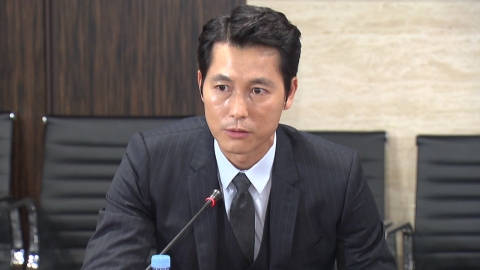
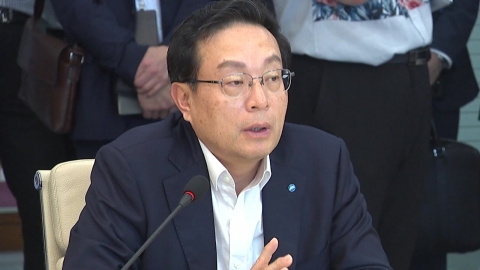
![Daiso's "Recall"...KRW 1,000 Stainless Steel Cleaner Lead Exceeded [Anchor Report]](https://image.ytn.co.kr/general/jpg/2024/1126/202411261059321476_h.jpg)
